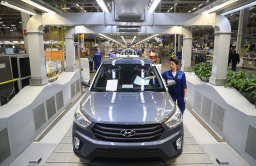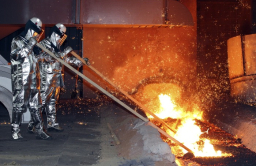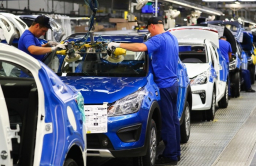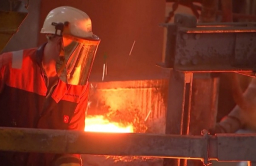-
KOSPI 2577.27 -2.21 -0.09%
-
KOSDAQ 722.52 -7.07 -0.97%
-
KOSPI200 341.49 +0.02 +0.01%
-
USD/KRW 1396 -2.00 0.14%
Hyundai Steel to resume steel production in Russia
Steel
Hyundai Steel to resume steel production in Russia
The Korean steelmaker had suspended operations at its St. Petersburg plant 2 years ago amid the Russia-Ukraine war
By
Mar 06, 2024 (Gmt+09:00)
2
Min read
News+
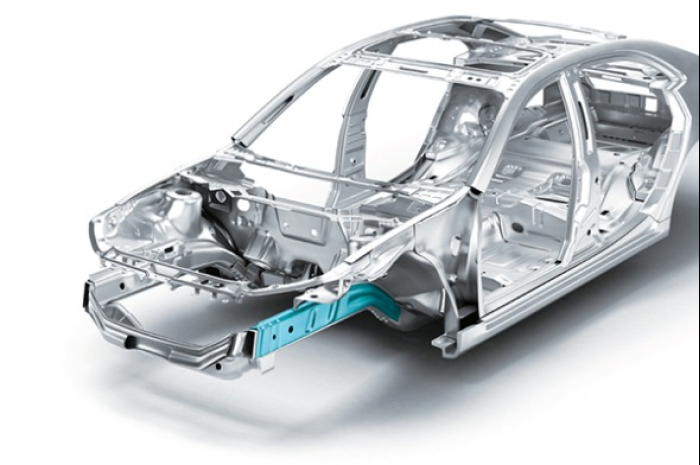
South Korea’s Hyundai Steel Co. is expected to resume steel production in Russia two years after it took its plant offline in the country amid the war between Russia and Ukraine, which later forced its auto-making sibling Hyundai Motor Co. to sell its factory to a Russian company.
According to steel industry sources on Wednesday, Hyundai Steel has decided to restart its automotive steel sheet plant in St. Petersburg, which has remained idle for about two years.
The decision comes in response to a request by AGR Automotive Group, a subsidiary of Art-Finance LLC, which took over Korean carmaker Hyundai Motor’s plant in the same city for a mere $100 in December.
Under the Russian company's control, Hyundai Motor’s old plant resumed operation in late February to produce cars under the new owner’s brand, Solaris.
It is said to be currently relying on steel inventories at the plant to produce sedans, crossover and crossover hatchback vehicles but will soon need more steel sheets after the inventories are depleted. Hyundai Steel is expected to supply the new steel products to the plant.
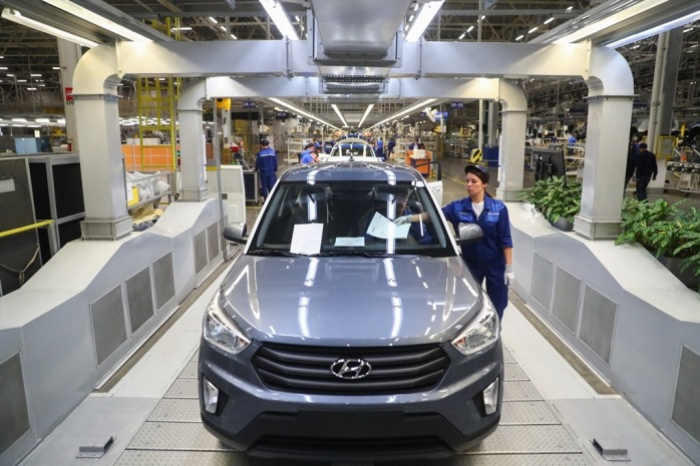
The Korean steelmaker expects the plant's reopening to help it bump up steel sales amid a waning steel demand driven by the industry slump.
Its operating profit in 2023 was halved to 807.3 billion won ($605.2 million) from the prior year on sales of 25.9 trillion won, down 5.2% over the same period.
A CASH COW TURNED INTO A LOSS MAKER
Its Russian plant was a cash cow, generating a net profit of about 5 billion won ($3.7 million) per year, but it fell into the red right after the shutdown of Hyundai Motor’s plant in the country in March 2022.
As a family company, Hyundai Steel relies heavily on its sister auto-making companies Hyundai Motor and Kia Corp. for steel sales.
Hyundai Wia Corp., another sibling that produces auto parts and components, is also said to have received orders from AGR to supply engines.
Hyundai Wia has a plant in Russia that can churn out engines, enough to power 280,000 cars a year, but the plant remains closed.
The company confirmed that AGR has placed an order for engines but added that the Korean parts maker has not yet decided whether to reopen its plant in Russia.
AGR’s total engine orders are said to be far short of the plant’s maximum production capacity.
AGR also took over Volkswagen’s local plant last year after the German auto giant withdrew from the Russian market in 2022.
When Hyundai Motor sold its Russia plant to the Russian company to exit the market, it agreed on an option to buy back the assets at the sale price in two years.
Write to Hyung-Kyu Kim and Jin-Won Kim at khk@hankyung.com
Sookyung Seo edited this article.
More To Read
-
Dec 19, 2023 (Gmt+09:00)
-
Oct 05, 2023 (Gmt+09:00)
-
Sep 14, 2023 (Gmt+09:00)
-
Aug 16, 2023 (Gmt+09:00)


